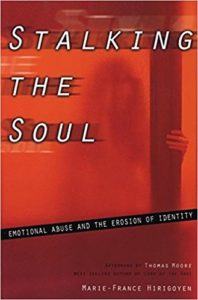Psychological violence in a relationship or in the family
Definition
Psychological violence, also referred as psychological abuse or emotional abuse, consists of words or gestures that aim to destabilize or injure someone else or other people, but also to subdue, control, and maintain a position of superiority.
In moments of anger we can all use offensive, contemptuous, or derogatory words, but usually these slippages are occasional and / or followed by regrets or apologies. On the other hand, psychological violence consists in a line of conduct, a way of being in a relationship instead of a one-off slip. It is to deny the other and to consider it as an object.
As with any issue of emotional abuse, it must be made clear that a single act or punctual acts do not in themselves constitute psychological violence. What distinguishes conjugal violence from a conflict of couples is not blows but asymmetry.
FAQ
Is domestic violence only physical violence?
Domestic violence is a mode of relationship based upon domination and control that sometimes involves physical aggression. There is never physical violence without psychological violence at the same time. Violence often begins during pregnancy or the birth of the first child. This corresponds to the possessiveness of the man who fears losing the woman that he considers belonging to him. it also expresses the fear of commitment and responsibilities from the stalker.
Violence gradually settles in the relationship, starting with tension and hostility. Depending on the psychological profile of the violent partner, the violence can be cyclical. In this case the phases of tension and aggression are followed by a phase of excuse and reconciliation; then the cycles are repeated with increasing intensity. It can also be a perverse violence where the hostility is constant, insidious and difficult to spot because it consits in psychological violence, and rarely physical.
How to perceive the difference between regular relationship issues from violence and control attemps?
There must be a clear distinction between violence and confrontation. Household scenes are necessary for couple’s life. Unlike violence, they contain rules accepted by everyone and there is no asymmetry. Everyone can answer, argue in their own way.
In this role play, everyone respects the other.
There is a limit, this line is intimacy. Domestic violence occurs when there is an asymmetry. One of the people can no longer answer, being deeply hurt by intimate attacks, exposed family secrets for example.
Which Socio-economic groups are most affected?
All of them are. Despite the classical scheme of the suburban alcoholic husban beating his wife at night finding some reality, statistics from police inquiries has uncovered that all socio-economic groups are concerned, including liberal professions. However, among prosperous people, the tendency is to be more discrete with these issues, and to wait longer before to alert the authorities.
Are there reliable statistics on domestic violence?
It is difficult to compile statistics and decipher the violence. For the moment, in France it is possible to rely on the 2000’s ENVEFF survey (Enquête nationale sur les violences envers les femmes en France). It can be considered that psychological and physical violence affect nearly 10% of couples.
What about men?
It would be interesting to conduct a survey among men, but there are very few husbands who lodge complaints against their wives. In addition, violence by women is much more psychological than physical. They often appear on the occasion of separations, sensitive periods where the low blows are more numerous.
Is there not greater equality between men and women?
Despite a positive evolution on the gender equality perspective in the current society, a lot of women continue to submit to men. Unemployment or the difficulty to reach upward professional promotions tend to trigger among men the need to enhance their self-esteem at the expense of people perceived as weaker of submitted to them, in that case women.
Do alcohol and drugs play a role in this process?
These products are not the real cause of violence, but they may facilitate the action by lifting the inhibition. Some men – eternal bad-skinned teens with narcissistic tendencies -, use alcohol or drug when they feel anxious or tense.
What can be done to reduce violence?
Society must take into account that certain limits must not be crossed. Otherwise, they constitute conjugal violence, even if this notion is very subjective and may vary from time to time. The purpose of this book is to alert people to take action as early as possible.
How?
The law on psychological abuse is important but it will not be enough to solve all cases. It is important that women learn to identify abusive situations earlier, and ask themselves the question: “Is this okay for me?”. Women should learn to set their own limits, and make them as solid as possible.







